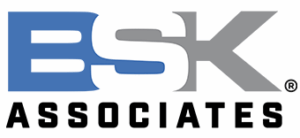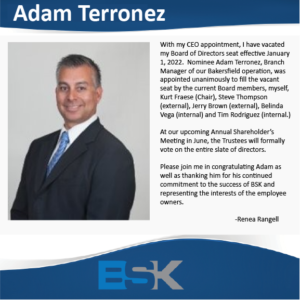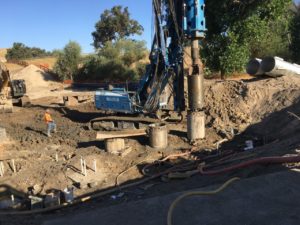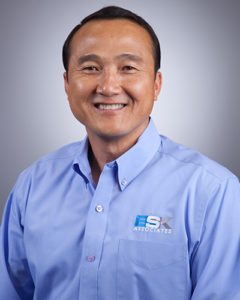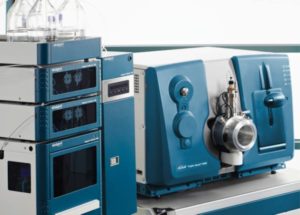BSK: Downtown Merced Revitalization
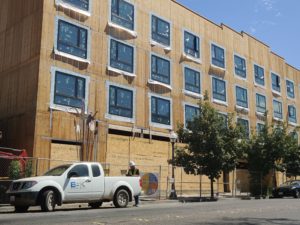
Revamp on historical buildings in downtown Merced.
BSK helps downtown Merced revitalize historical buildings. Three of Merced’s oldest buildings are receiving a face lift in hopes of bringing downtown Merced back to life. Downtown Merced has been under construction over the past year on Tioga Hotel, El Capitan Hotel, and the Mainzer Theatre. Not only are these three historical sites some of the oldest buildings in Merced, built as early as 1920’s, they also have noteworthy historical pasts. The goal of this project is to renovate these notorious sites, while still maintaining some historical integrity.
BSK Associates has played a key role in the renovations of each of these buildings. After BSK’s initial Geotechnical Engineering Investigation, South Valley Regional Manager, On Man Lau, PE, GE, was able to reduce the size of the micropiles. This reduction saved the developer thousands of dollars towards the renovations.
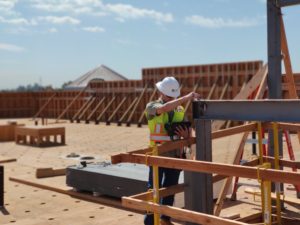
BSK: Downtown Merced Revitalization
All three renovations are still in progress. However, we are excited to announce the Tioga is nearing completion. The El Capitan Hotel and Mainzer Theater are also well on their way.
The Tioga Hotel becomes Luxury Apartments
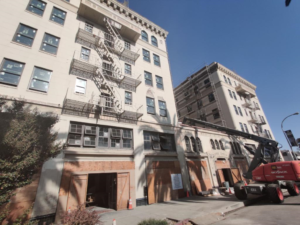
Tioga Hotel, Downtown Merced Revitalization.
The Tioga Hotel is one of the oldest and largest buildings in the City of Merced. Built in 1928, the Tioga was home to Merced’s first neon sign, was a key player in the wartime efforts during World War II, and attracted numerous notable figures and royalty from across the world, including Calvin Coolidge, Eleanor Roosevelt, Marilyn Monroe, and John Kennedy. The National Register of Historical Places inducted the Tioga in 1980. Due to its prestigious history it was important to all those involved to preserve as much of the building as possible, while upgrading the structure to today’s safety standards.
BSK had the opportunity of performing field exploration on the Tioga; designing micropiles for a seismic retrofit on the existing six story reinforced concrete structure. Furthermore, we performed materials testing and inspection on the Tioga including but not limited to:
- Drilled Pier Soils Observations
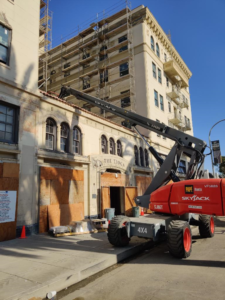
Tioga Hotel. Downtown Merced Revitalization.
- Reinforced Concrete Inspections
- Concrete Sampling and Testing
- Post Installed Anchor Inspections
- Shop and Field Welding Inspections
- High Strength Bolting Inspections
- Epoxy Rebar Inspections
- Shear wall nailing Inspections
- Wood Moisture Testing
Features include; studios, one-and two-bedroom apartments, and penthouse apartments. The lobby will feature social work-spaces, a fitness center, and private conference and event rooms. There are also plans to include a retail area on the street level space.
El Capitan Hotel Renovations
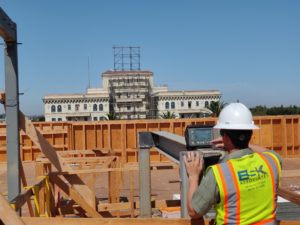
UT inspection at El Capitan. Photo features the Tioga in background.
El Capitan is another historic remodel for the City of Merced. The original EL Capitan was Merced’s first hotel, built in 1872, the same year the City of Merced was established. Unfortunately, in 1931 the hotel burnt, but it was remodeled and has been left as it is since 1936.
As with the Tioga Hotel, BSK has helped with the renovations on El Capitan from the ground up, from performing Ultrasonic Testing on the primary metal structure of the building in local weld shops, to being on the El Capitan job site, conducting Reinforced Concrete Inspection.
Tioga Hotel features 114 rooms restored to encompass the original feel of the hotel and honor the historic El Capitan as the town’s first railroad depot. The space will also feature a restaurant, a café, and an amazing courtyard lounge.
The Mainzer Theater

The Mainzer Theatre revamp in Downtown Merced.
Although construction on this building originally began in the 1920’s, the Mainzer Theatre did not open its doors until Halloween, October 31st, of 1931. The Mainzer Theatre is one of the most recognized landmarks in Merced. Originally built by famous architects from San Francisco, the Reid Brothers. The Spanish Courtyard design was very unique. According to the Merced Theatre Foundation, which was responsible for the initial restoration of the building in 2012, “Patrons that visited the theatre believed that there were people living in the windows of the courtyard”. The Mainzer Theatre has been a special place for those of Merced, from school graduations and dance performances, to weddings, and of course movies; the theatre has been visited by many. Once again because of its rich history it was important to keep the historical feel on this project.
Additionally, BSK was asked to provide our services for the Mainzer Theatre. Some of the work we will be conducting includes:
- Soils Observations and Compaction Testing.
- Reinforced Concrete Inspections.
- Concrete Sampling and Testing.
- Post Installed Anchor Inspections.
- Shop Welding Inspections.
Upon completion The Mainzer Theatre will have 4 bowling lanes, a restaurant, a stage, movie theater, and possibly a bar. Renovations are not scheduled to be completed until late 2020. However, they are already well into renovations.
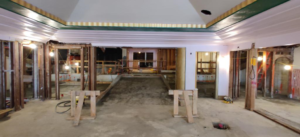
Lastly, Mainzer Theatre. Merced Revamp.
Special Thanks
The downtown revamp has been a very rewarding project for BSK. We thrive on being a part of a project that truly makes a difference in the community.
Lastly, we’d like to give a special thanks to all of our BSK employees and our client!
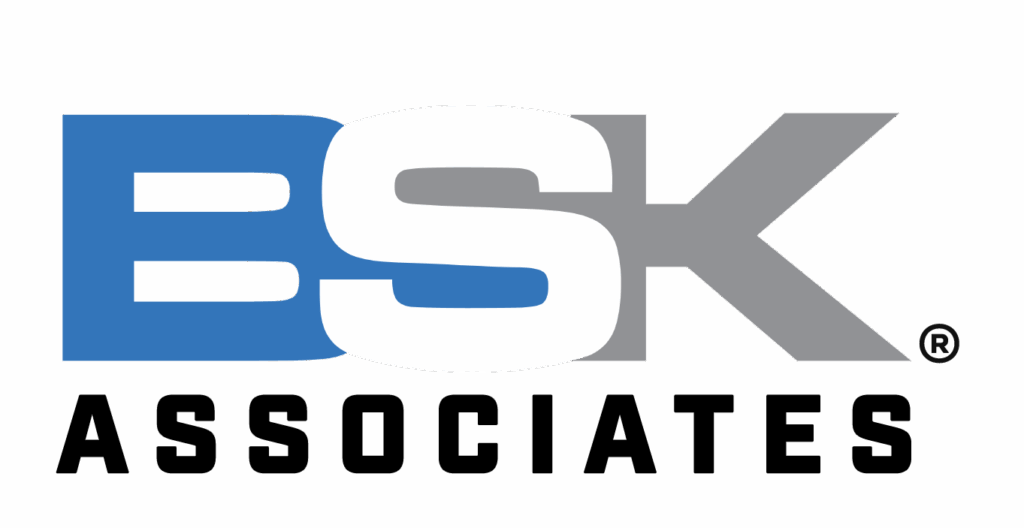
Follow Us and Like Us:
BSK strongly believes in giving back to the communities in which we work. Additionally, we believe the well-being of our communities has a direct bearing on the success of BSK, and our employees. We strive to make sure our community involvement goals have a positive impact on the communities which we serve.
Want to be in the “know” on upcoming BSK events, community service, and projects?
Like us on Facebook.
Follow us on LinkedIn.
Also, don’t forget to check out our blog page to find out more information.
Looking for a Great Places to Work? You’ve found it! We are proud to be Great Place to Work certified. Check out our job opportunities page for more details.


